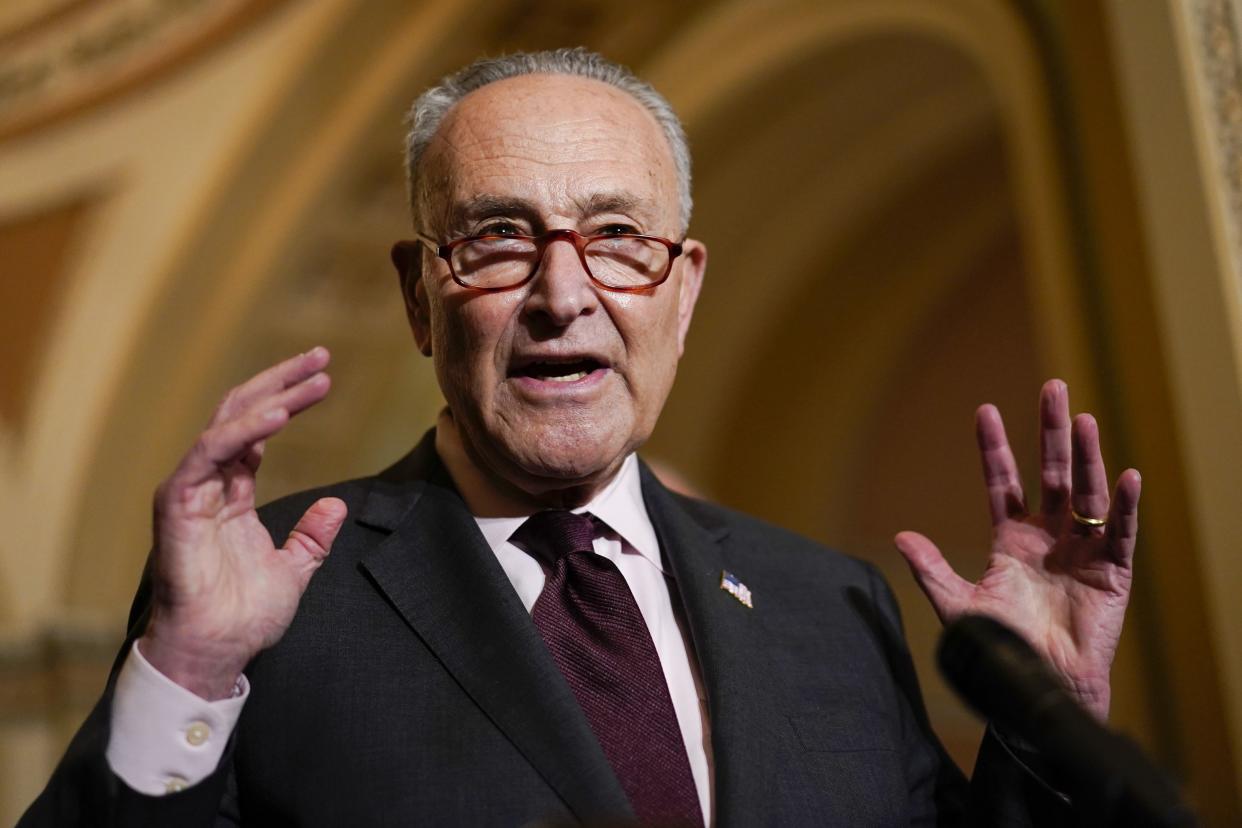Senate agrees deal to avert default as GOP blinks again on debt ceiling
Senate leaders forged a bipartisan deal on Tuesday that would raise the debt ceiling and prevent the U.S. from defaulting on its debt obligations next week.
Minority Leader Sen. Mitch McConnell (R-Ky.) effectively blinked for the second time by agreeing to a complicated legislative formula that allows Democrats to hike the borrowing limit with a simple majority vote.
“This is in the best interest of the country by avoiding default,” McConnell said. “I think it is also in the best interest of Republicans.”

Majority Leader Sen. Chuck Schumer (D-NY.) warned that the deal isn’t “done until it’s done” but said Democrats are comfortable shouldering the political responsibility for raising the debt ceiling.
“Letting Democrats carry it ourselves is what we’ve always said,” Schumer said. “And that’s the direction we are headed.”

The deal was reached during closed-door one-on-one talks between the two Senate powerbrokers who share a sense of urgency about ensuring the U.S. could pay its debts. Failure to find a solution would’ve resulted in an unprecedented crisis that could push the economy into recession after months of steady recovery from the COVID pandemic.
Former President Trump has derided McConnell for not using the debt ceiling as leverage to win concessions out of Democrats or stir divisions that could scuttle the Biden plan.
Even mainstream Senate allies of McConnell like Sen. Mike Rounds (R-N.D.) said they are not sold on the idea, which makes it easier for Democrats to enact Biden’s agenda.
The bill, scheduled for a vote by the House of Representatives and sent to the Senate this week, would tack on the debt ceiling increase to an unrelated Medicare with broad agreement from both sides of the aisle.
The one-time measure would allow Democrats to use a simple majority vote to raise the debt ceiling by whatever amount they determine, without overcoming the threat of a GOP filibuster.
Democratic leaders plan to hike the limit by enough to allow the government to continue borrowing money past the midterm elections, a move that would effectively defuse the time bomb of the U.S. defaulting on its obligation for the immediate future.
